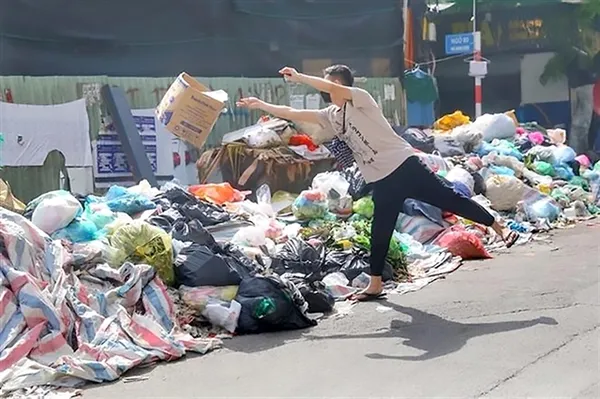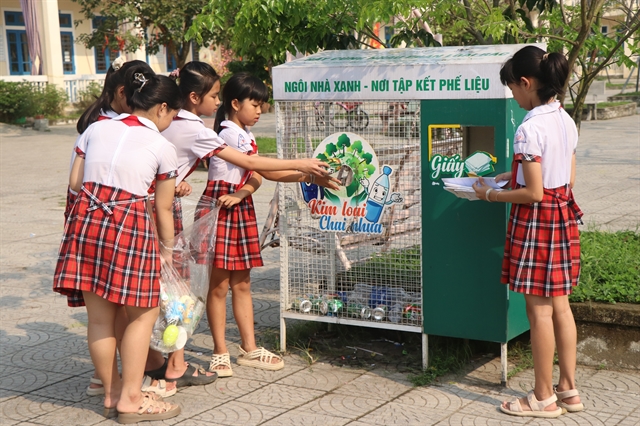 Society
Society

 |
| Students collect and classify waste in Thừa Thiên-Huế Province. — VNA/VNS Photo Mai Trang |
HÀ NỘI — The increase in plastic waste has raised the risk of pollution and will increase pressure on the environmental management system if not controlled effectively and scientifically, according to the Ministry of Natural Resources and Environment (MoNRE).
In 2009, the United Nations General Assembly chose April 22 as Earth Day to encourage people around the world to understand the importance of and work together to protect the Earth.
The theme of Earth Day this year, “Planet vs. Plastics”, aims to call on countries to reduce all types of plastic by 60 per cent by 2040, towards ending the use of plastic for the sake of human health.
According to the MoNRE, Việt Nam's plastic consumption index per capita has increased very rapidly, from 3.8kg per person per year in 1990 to 41kg per person per year in 2015 and is currently about 54kg.
Fully aware of plastic waste’s harmful effects, the Việt Nam Government has issued many policies, and participated in many international forums and cooperation efforts in its determination to reduce plastic waste.
Typically, on December 4, 2019, the Prime Minister promulgated a National Action Plan on ocean plastic waste management until 2030.
The plan’s goals are to reduce plastic waste in seas and oceans by 75 per cent by 2030; have all tourist areas and tourist accommodation services not using disposable plastic products, and keep all marine protected areas free of plastic waste.
Implementing the plan, on July 2, 2020, the MoNRE approved the project: "Reducing ocean plastic waste in Việt Nam".
The project is funded by the German Ministry of Environment, Nature Conservation and Nuclear Safety through the World Wildlife Fund (WWF).
The project is implemented in 10 provinces and cities, such as Quảng Bình, Thừa Thiên-Huế, Đà Nẵng, Phú Yên and Long An.
Initial results
Nguyễn Đức Toàn, Director of the Việt Nam Agency of Seas and Islands under the MoNRE, assessed that the project was recognised by the community and created a widespread effect.
It supported the development of guiding documents and implemented priority policies to raise awareness and change people’s behaviour.
With a flexible, methodical approach and comprehensive topics, the project created a solid foundation and valuable lessons for the localities.
During the past four years, the project has worked with more than 160 schools at all levels to build a model of "School without plastic waste".
It also supports marine protected areas to clean coral reefs and sea grass beds in Phú Quốc, Côn Đảo and Cù Lao Chàm.
Many localities have replicated some effective solutions from the project such as plastic collection in Đà Nẵng, waste classification at its source in Long An and fishermen bringing trash to shore in Quảng Nam.
In Phú Quốc and Thừa Thiên-Huế, nearly 60 businesses joined efforts to reduce plastic through changing their work methods and guiding their employees’ habits.
Within the project’s framework, the World Wide Fund for Nature Việt Nam and the MoNRE successfully organised the contest "Green consumption initiatives to reduce plastic pollution" and the forum "Reducing ocean plastic waste: Responsibilities and actions of young people".
Especially last year, with support from the national action partnership programme on plastics, a map of initiatives and innovative solutions was built and has been updated and completed. — VNS